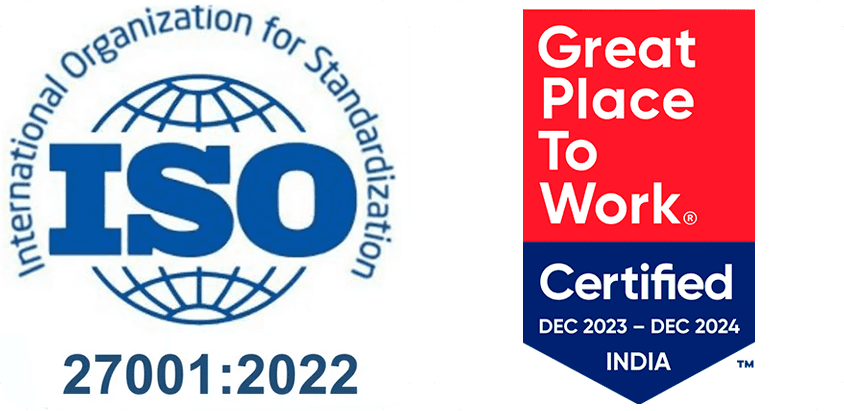
Do you know? An effective call center training program focuses on a blend of core competencies and continuous development methods.
In today’s market, customer expectations are higher than ever. Recent studies show that 78% of customers leave a brand after just one poor interaction, while a well-trained call center team sees up to 2x higher customer retention. There is one more result you must know: 73% of the customers stay loyal to brands when the call center agent delivers friendly, knowledgeable service.
Even with the most advanced contact center software, automating workflows, routing calls, and tracking performance, the real customer experience still depends on the human handling the call. Tools that can enhance efficiency; however, only trained agents can deliver empathy, clarity, and confidence, qualities that customers value the most.
In this blog, we will explain why call center agents need proper training despite advanced call center software.
It is a structured process for preparing agents with the skills, use of call center software, and other needs for effective customer service. This training includes knowledge of the product, customer service skills, technical proficiency with call center software, and some company policies. The goal of the training is to ensure agents can handle inquiries and resolve issues professionally, thereby improving customer satisfaction and business efficiency.
Poor training and support can lead to a decline in agent performance. The main challenges that agents struggle with include
1. Miscommunication
2. Slow response time
3. Ineffective use of software tools
4. Poor conflict handling
5. Low first call resolution
Training Call Center Agents today requires more than just scripts, call center software, accents, and product knowledge. Modern customer expectations rely on omnichannel communication, and AI-driven operations demand more innovative, more adaptive training strategies. Here are 10 practical, high-value call center training tips to boost your team’s value.
Some agents lose confidence when feedback comes too late. Real-time coaching gives proper supervision, with the power to monitor live calls, call whisper guidance without the customer hearing, and help the agent tackle tough questions instantly.
What it solves:
Pro tip: Use SanCCS- Contact Center Software that supports barge-in, whisper, and live monitoring.
Instead of putting a manual book in front of the agent, put them into real customer situations.
Like..
And more…
This method trains on tone control, problem-solving, decision-making, and call flow management.
It solves:
No customer wants to repeat the same thing during every call.
Train your agents so that they know the customer’s issues by:
It solves:
Agents cannot resolve issues if they don’t fully understand:
Give your agent a demo on the products, internal sandbox accounts, and updated cheat sheets.
It solves:
Modern call center tools, such as auto dialers, CRM system integration, IVR, automatic call distribution, and quality assurance tools, enhance agent efficiency and accuracy. If you have your own call center software, it’s essential to ensure agents are well-trained to use it. However, if you are utilizing an outsourced contact center solution like SanCCS, the training for these tools will be provided exclusively by SanCCS’s support team.
Train agents on:
It solves:
Are your agents confident in their communication skills? There is a saying. If your voice is filled with confidence, you can turn even the most challenging journey into a successful one.”With the help of call monitoring, you can train your agent on:
It solves:
Teach agents how to get it right on the first call.
Practical FCR training must include:
It solves:
Agent burnout leads to poor performance. Always try to give agents techniques like:
It solves:
Avoid vague statements like “Be more confident” or “Improve your communication.”
Instead, use data-backed feedback:
It solves:
The best call centers run ongoing training, not yearly sessions.
Month Conduct:
It solves:
Effective Call Center Training has evolved beyond mere script emphasis; it now prioritizes adaptability, empathy, AI-enhanced learning, and ongoing development. Additionally, the efficacy of such training is contingent upon the quality of the contact center software utilized by your organization.
By providing robust software solutions and ensuring that agents are thoroughly knowledgeable about the support process, your business can operate with greater efficiency. The implementation of these training strategies will empower your team to deliver consistent, high-quality support, thereby reinforcing your brand and enhancing customer satisfaction.
Businesses should use cloud-based call center software like SanCCS with features like auto-dialers, IVR, CRM integration, call recording, live monitoring, and real-time analytics. This ensures faster operations, higher FCR, and scalable performance.
Call center training is the process of teaching agents communication skills, product knowledge, customer handling techniques, and software usage so they can handle calls confidently and resolve issues effectively.
Yes. SAN Softwares provides complete onboarding and call center training after SanCCS installation, including product walkthroughs, agent coaching, workflow setup, and best practices for handling calls efficiently.
The three common types of training are:
Basic call center agent skills include:
Basic call center agent skills include:
The 10-5-3 rule states:
It ensures friendly, consistent, and human customer interaction
SAN Softwares is a company dedicated to providing complete software solutions to Corporate and end-user customers.

SAN Softwares is a company dedicated to providing complete software solutions to Corporate and end-user customers.

© 2026 SAN Softwares Pvt Ltd | All Right Reserved
Enter your details to receive an OTP